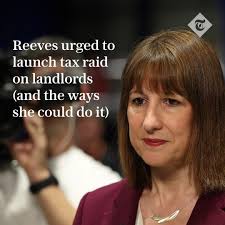Rachel Reeves’ Tax Raid on Landlords Explained

Introduction
The recent proposal by Labour’s Shadow Chancellor, Rachel Reeves, to implement a tax raid on landlords is stirring conversations across the housing and financial landscapes in the UK. With the rental market facing unprecedented demands and issues such as rising homelessness, the importance of this initiative cannot be understated. It seeks not only to generate substantial revenue for public services but also to address a growing housing crisis affecting millions of renters.
The Proposal Details
Rachel Reeves unveiled her plan during a conference in Manchester last week, emphasising that the proposed tax increase would target landlords who own multiple properties, particularly those who have benefited significantly from the rising rental prices over the past few years. The initiative aims to impose a higher tax rate on rental income above a certain threshold. Reeves suggested that this could potentially raise billions of pounds which would be redirected towards affordable housing schemes and support for vulnerable populations.
According to recent reports from the Office for National Statistics (ONS), private rental prices continued to increase, particularly in areas with high demand and low supply. Many experts welcome the proposal, arguing that a tax on ‘accidental landlords’—those who own multiple properties not out of necessity but investment—that propels housing costs upward, could ease the strain on tenants struggling with soaring rents.
Reactions and Implications
The reaction to Reeves’ proposal has been mixed. While housing advocates and low-income renters have shown support for increased regulation on rental prices, landlords’ associations have vehemently opposed the idea, claiming it could lead to reduced investment in the housing sector. They argue that such a measure might prompt landlords to sell their properties, subsequently exacerbating the rental shortage in the long run.
Critics of the plan also point out the risk of damaging the rental housing market, suggesting that squeezing landlords financially could lead to increased evictions and reduced housing quality. Conversely, supporters underline the immediate need for action to combat the growing disparity between rental prices and wages.
Conclusion
As conversations around Rachel Reeves’ tax raid on landlords continue, its outcomes may play a crucial role in shaping the future of housing in the UK. The overarching challenge remains: balancing the needs of renters who require affordable housing against the interests of landlords who invest in the housing market. Analysts predict that if implemented, this policy could pave the way for significant changes in property ownership and rental dynamics, potentially setting a precedent for government intervention in other sectors. For renters, the hope is that such proposals could lead to a more equitable and affordable housing landscape.









